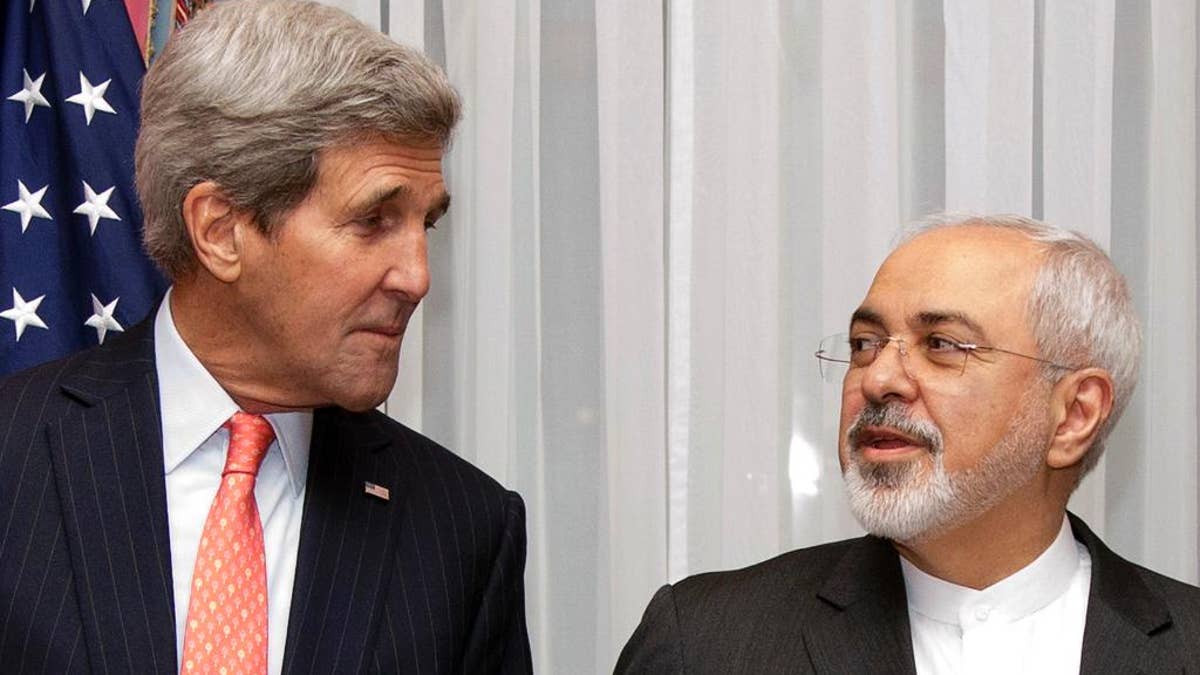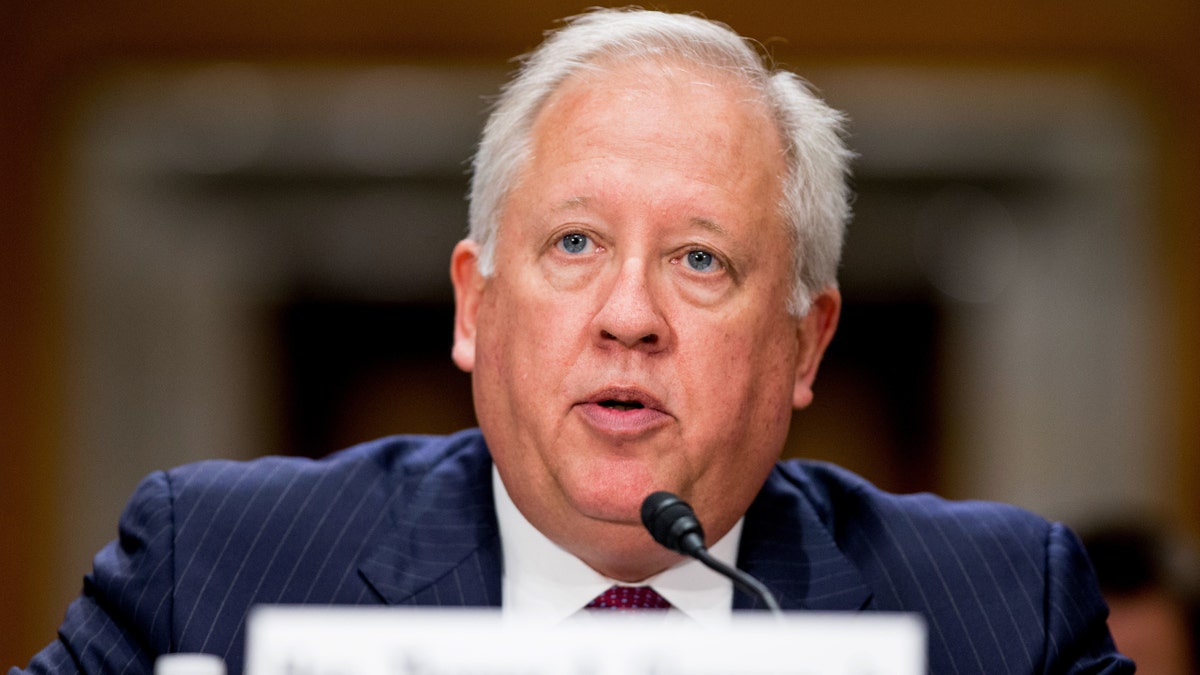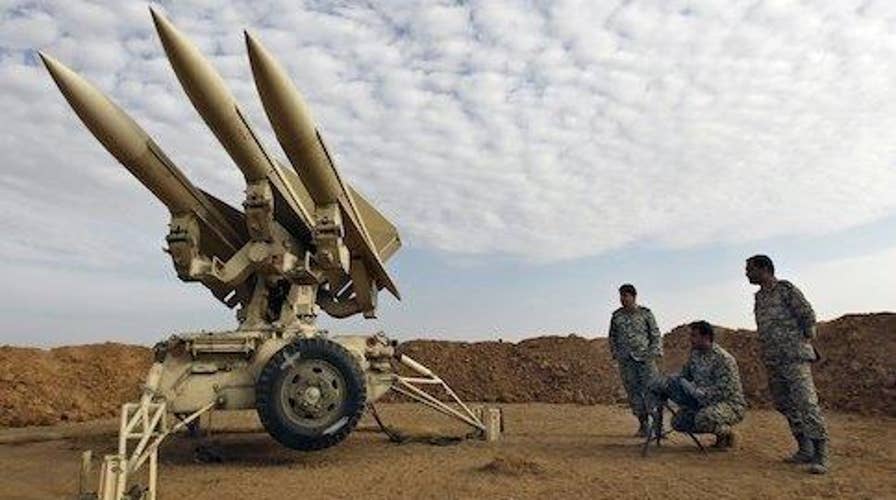Iran: Missile program not up for negotiation with the US
Former Ambassador to the U.N. John Bolton reacts on 'America's News HQ'
Iran’s foreign minister said Sunday the Islamic Republic’s ballistic missile program is “not open to negotiation” with the United States, seemingly spurning an overture from Secretary of State John Kerry.
Kerry said Thursday during a visit to Bahrain that the U.S. and its regional allies were “prepared to work on a new arrangement to find a peaceful solution” to the dispute over recent Iranian ballistic missile tests.

Secretary of State John Kerry, left, listens to Iran's Foreign Minister Mohammad Javad Zarif. (AP)
The missile tests are not covered by the U.S.-Iranian nuclear deal, also known as the Joint Comprehensive Plan of Action, agreed to this summer; however, the U.S. and its allies contend the launches go against a U.N. Security Council Resolution. Iran denies the launches violate the U.N. resolution.
Some Western experts fear the missiles could one day be used to deliver nuclear payloads.
But Foreign Minister Javad Zarif rejected Tehran making any concessions to the international community on the missile topic.
“Secretary Kerry and the U.S. State Department know well that Iran’s missile and defense capabilities are not open to negotiation,” Zarif said. The Tehran Times reported the remarks which were first made public by the country’s ISNA news agency.
Framing the launches as an issue of self-defense, Zarif said “There would be no JCPOA for defense issues,” The Guardian reported.
Instead, Zarif countered that the U.S. should halt “the selling of weaponry which are used to slaughter the defenseless Yemeni people or employed by the Zionist regime [in Israel].”
Zarif also suggested the U.S. should be concerned that some of its allies were arming ISIS.
“The U.S. needs to view regional issues more seriously than raise baseless and threadbare allegations against Iran,” Zarif said, The Guardian reported. “Mr. Kerry should ask U.S. allies where the Islamic State’s arms come from.”
Iran has tested ballistic missiles in October and March. The U.S. has responded with some sanctions on individuals and businesses, but not broad-based national sanctions, which some administration critics have called for.

State Department Undersecretary for Political Affairs Thomas Shannon testifies on Capitol Hill. (AP)
Undersecretary of State for Political Affairs Thomas Shannon said last week during congressional testimony that one of Iran’s primary purposes for continuing the ballistic launches was to assuage hard-liners in the country who were upset by the terms of the nuclear deal. He also said missile tests would likely to continue.
“Iran is intent on pursuing a ballistic missile program,” Shannon said. “It sees it not only as part of its larger strategic weapons program, but it also plays a larger political role in Iran, especially in the aftermath of the JCPOA.”
The Associated Press contributed to this report.






















